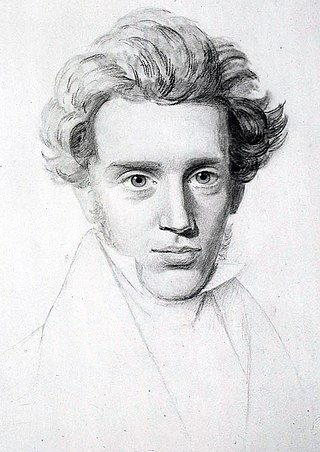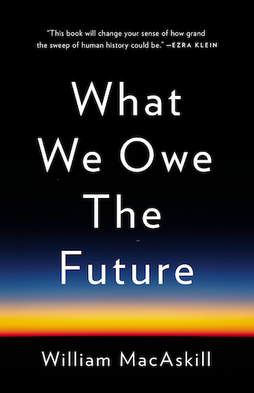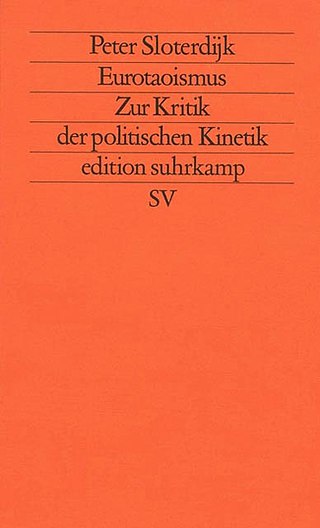Related Research Articles

The meaning of life pertains to the significance of living or existence in general. Many other related questions include: "Why are we here?", "What is life all about?", or "What is the purpose of existence?" There have been many proposed answers to these questions from many different cultural and ideological backgrounds. The search for life's meaning has produced much philosophical, scientific, theological, and metaphysical speculation throughout history. Different people and cultures believe different things for the answer to this question.

Peter Albert David Singer is an Australian moral philosopher and the Ira W. DeCamp Professor of Bioethics at Princeton University. He specialises in applied ethics, approaching the subject from a secular, utilitarian perspective. He wrote the book Animal Liberation (1975), in which he argues for veganism, and the essay "Famine, Affluence, and Morality", which favours donating to help the global poor. For most of his career, he was a preference utilitarian, but he revealed in The Point of View of the Universe (2014), coauthored with Katarzyna de Lazari-Radek, that he had become a hedonistic utilitarian.
In philosophy, rationalism is the epistemological view that "regards reason as the chief source and test of knowledge" or "any view appealing to reason as a source of knowledge or justification", often in contrast to other possible sources of knowledge such as faith, tradition, or sensory experience. More formally, rationalism is defined as a methodology or a theory "in which the criterion of truth is not sensory but intellectual and deductive".

William James was an American philosopher, historian, and psychologist, and the first educator to offer a psychology course in the United States. James is considered to be a leading thinker of the late 19th century, one of the most influential philosophers of the United States, and the "Father of American psychology".

Pascal's wager is a philosophical argument advanced by Blaise Pascal (1623–1662), a notable seventeenth-century French mathematician, philosopher, physicist, and theologian. This argument posits that individuals essentially engage in a life-defining gamble regarding the belief in the existence of God.

Carl Herrmann Unthan was a Prussian-born violinist who was born without arms.

Ted Honderich is a Canadian-born British professor of philosophy, who was Grote Professor Emeritus of the Philosophy of Mind and Logic, University College London.

Peter Sloterdijk is a German philosopher and cultural theorist. He is a professor of philosophy and media theory at the University of Art and Design Karlsruhe. He co-hosted the German television show Im Glashaus: Das Philosophische Quartett from 2002 until 2012.
In philosophy, ressentiment is one of the forms of resentment or hostility. The concept was of particular interest to some 19th century thinkers, most notably Friedrich Nietzsche. According to their use, ressentiment is a sense of hostility directed toward an object that one identifies as the cause of one's frustration, that is, an assignment of blame for one's frustration. The sense of weakness or inferiority complex and perhaps even jealousy in the face of the "cause" generates a rejecting/justifying value system, or morality, which attacks or denies the perceived source of one's frustration. This value system is then used as a means of justifying one's own weaknesses by identifying the source of envy as objectively inferior, serving as a defense mechanism that prevents the resentful individual from addressing and overcoming their insecurities and flaws. The ego creates an enemy to insulate themselves from culpability.

The philosophy of Søren Kierkegaard has been a major influence in the development of 20th-century philosophy, especially existentialism and postmodernism. Søren Kierkegaard was a 19th-century Danish philosopher who has been labeled by many as the "Father of Existentialism", although there are some in the field who express doubt in labeling him an existentialist to begin with. His philosophy also influenced the development of existential psychology.
Some Marxists posit what they deem to be Karl Marx's theory of human nature, which they accord an important place in his critique of capitalism, his conception of communism, and his materialist conception of history. Marx does not refer to human nature as such, but to Gattungswesen, which is generally translated as "species-being" or "species-essence". According to a note from Marx in the Manuscripts of 1844, the term is derived from Ludwig Feuerbach's philosophy, in which it refers both to the nature of each human and of humanity as a whole.

Joseph Zalman Margolis was an American philosopher. A radical historicist, he authored many books critical of the central assumptions of Western philosophy, and elaborated a robust form of relativism.
Critique of Cynical Reason is a book by the German philosopher Peter Sloterdijk, published in 1983 in two volumes under the German title Kritik der zynischen Vernunft. It discusses philosophical Cynicism and popular cynicism as a societal phenomenon in European history.
Cynicism is an attitude characterized by a general distrust of the motives of others. A cynic may have a general lack of faith or hope in people motivated by ambition, desire, greed, gratification, materialism, goals, and opinions that a cynic perceives as vain, unobtainable, or ultimately meaningless. The term originally derives from the ancient Greek philosophers, the Cynics, who rejected conventional goals of wealth, power, and honor. They practiced shameless nonconformity with social norms in religion, manners, housing, dress, or decency, instead advocating the pursuit of virtue in accordance with a simple and natural way of life.
Rose is the 2010 book by Inga Muscio which looks into the passive and physical violence in our daily lives and describes how we might find love within this violence. It is her third book, following Cunt: A Declaration of Independence (1998) and Autobiography of a Blue-Eyed Devil: My Life and Times in a Racist, Imperialist Society (2005). Rose is divided into three main sections: an Introduction, Part I—Violence, and Part II—Love.
Keith Ansell-Pearson is a British philosopher specialising in the work of Friedrich Nietzsche, Henri Bergson and Gilles Deleuze. He is currently Professor of Philosophy at Warwick University.

Free Will is a 2012 book by American philosopher Sam Harris. It argues that free will is an illusion, but that this does not undermine morality or diminish the importance of political and social freedom, and that it can and should change the way we think about some of the most important questions in life.
In critical theory, Pharmakon is a concept introduced by Jacques Derrida. It is derived from the Greek source term φάρμακον (phármakon), a word that can mean either remedy, poison, or scapegoat.

What We Owe the Future is a 2022 book by the Scottish philosopher and ethicist William MacAskill, an associate professor in philosophy at the University of Oxford. It argues for effective altruism and the philosophy of longtermism, which MacAskill defines as "the idea that positively influencing the long-term future is a key moral priority of our time."

Infinite Mobilization is a 1989 book by the German philosopher Peter Sloterdijk. It critiques modernity as a conception of kinetics that inevitably leads to disappointment, and promotes a view of life as a series of beginnings.
References
- ↑ Sloterdijk, Peter (2013). You Must Change Your Life . Malden, MA: Polity Press. ISBN 978-0-7456-4921-4.
You Must Change your Life.
- ↑ Rée, Jonathan (9 November 2012). "Book review: You must change your life by Peter Sloterdijk". New Humanist.
- ↑ Ansell-Pearson, Keith (8 July 2013). "Philosophy of the Acrobat: On Peter Sloterdijk". LA Review of Books.